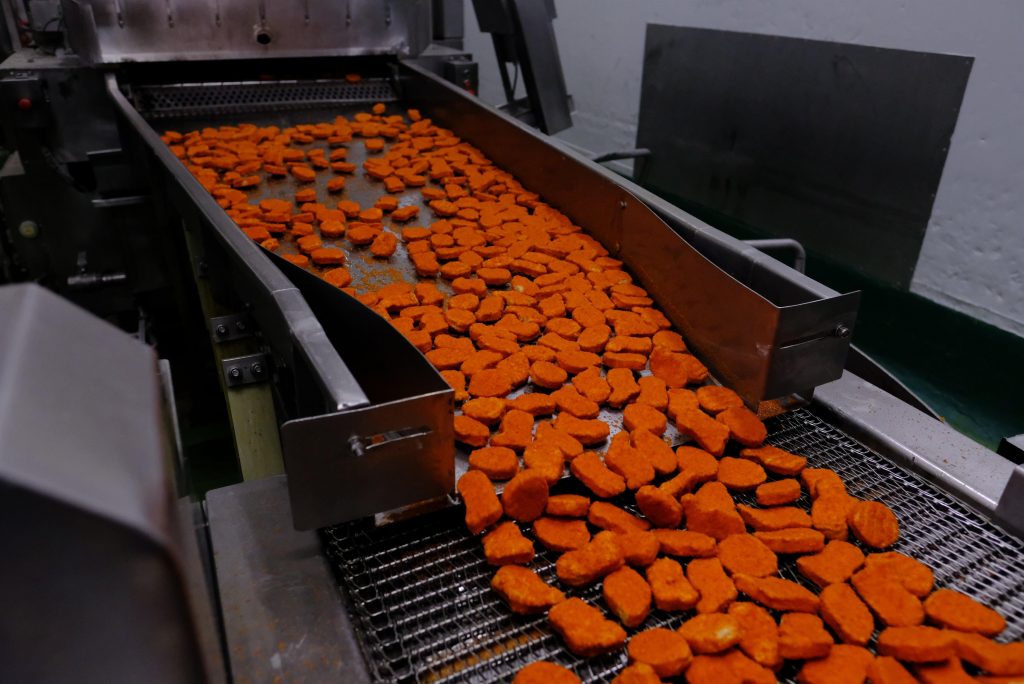São Paulo – Brazilian food company BRF, which owns brands Sadia and Perdigão, is planning to step up its game in the Saudi Arabian market. Its press office confirmed this Thursday (10) that BRF is considering manufacturing locally in Saudi Arabia. This may come to pass via local partners or a proprietary plant in the country.
The Brazilian company is working to turn around a Saudi restriction on items processed at its plant in Abu Dhabi, UAE, which partly supplies the Saudi market.
BRF said the “Abu Dhabi plant is undergoing auditing to ascertain that value is being added in local production as per GCC rules. The company has sufficient inventory in the region, and it is directing its production to other Gulf markets until the flow of trade is fully reestablished.” GCC is the acronym for the Gulf Cooperation Council, comprising Saudi Arabia, Bahrain, Qatar, UAE, Kuwait and Oman.
BRF sold 298,000 tonnes of halal poultry in Q2 2019. Processed items, such as nuggets (pictured), made up 40,000 tonnes, 10,000 tonnes of which went to Saudi Arabia. BRF said the restriction regarding the Abu Dhabi plant is a temporary issue and amounts to a minor share of the company’s exports of halal items – i.e. those fit for consumption by Muslims. The company also claims it has inventories within Saudi Arabia.
In January, Saudi Arabia announced a ban on imports of poultry from five Brazilian packers, after the Saudi Food and Drug Authority (SFDA) ruled that the companies did not fully comply with technical requirements. Industry insiders believe this was also a move designed to help Saudi Arabia develop – and protect – its local industry.
BRF executives discussed the issue upon releasing Q1 2019 results at a press conference. “We’re really considering this global scenario before going forward in Saudi Arabia. News is out that we are considering making investments. But that’s surely because local [poultry] production [in Saudi Arabia] is already at 60%. We also want to be in those 60%. We’ve already had a very positive experience in Turkey,” said International Markets VP Patricio Rohner, in a reference to BRF’s Turkey plant.
On that occasion, Rohner said that although two BRF plants had been suspended, three or four had been newly accredited to sell product.
Translated by Gabriel Pomerancblum




